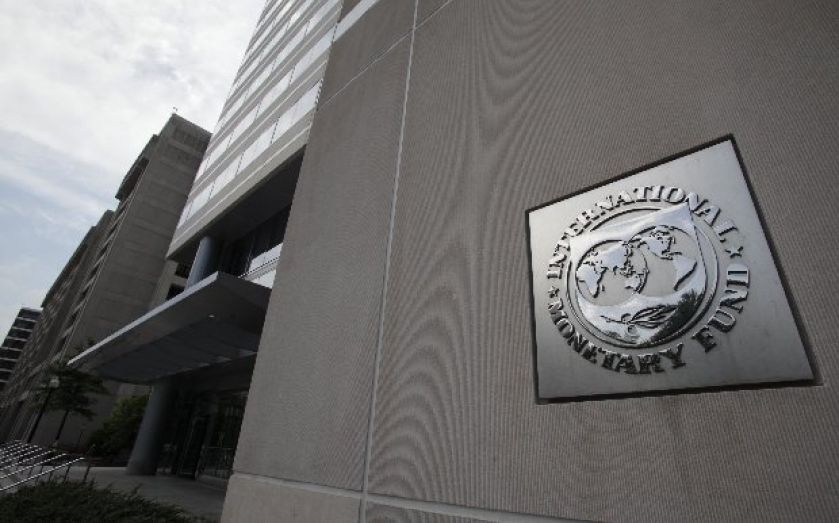IMF upgrades UK growth expectations again but trims global growth forecast for 2014 to 3.4pc

The International Monetary fund has slashed its global growth forecast to 3.4 per cent, down 0.3 per cent on its April estimates, following weak economic data from the United States and emerging economies.
The surprise fall in US gross domestic product for the first three months of the year, which plunged 2.9 per cent year on year, and limp figures from BRIC countries such as China and Brazil, are likely to mark another discouraging year for global economic growth.
US growth has been downgraded by 1.1 per cent is now projected at 1.7 per cent for 2014, rising to three percent in 2015.
In its quarterly report, the IMF warned that only some of the factors leading to the reduction were temporary, and said warned that the risk of economic stagnation was high unless countries acted to boost growth through deeper reforms, such as infrastructure investment and modifying tax legislation.
"Global growth could be weaker for longer, given the lack of robust momentum in advanced economies despite very low interest rates and the easing of other brakes to the recovery. In some major emerging market economies, the negative growth effects of supply-side constraints and the tightening of financial conditions over the past year could be more protracted," the Washington-based institution said.
The fund also warned that increased geopolitical risks could hurt the global economy, by pushing oil prices sharply higher.
IMF boss Christine Lagarde had last week cautioned that financial markets were "perhaps too upbeat" on the recovery and warned of high unemployment and high debt in Europe potentially dragging down investment and damaging future growth prospects, especially in light of geopolitical risks.
The UK gets another upgrade
But the UK received a boost in the update, as the IMF expects it to be the fastest growing advanced economy this year, as the institution continues to believe in the country's economic revival. This will come as a boost to Chancellor George Osbourne just a day before new GDP figures are expected to show gross domestic product has surpassed its 2008 peak.
The IMF expects that the UK economy will grow 3.2 per cent in 2014, 0.4 per cent higher than the previous estimate. The upgrade means that the UK economy is set to grow at almost twice the pace of the US, which is expected to rise by 1.7 per cent and three times that of the Eurozone, predicted to be 1.1 per cent.
The UK economy is expected to grow 2.7 per cent in 2015, an upgrade of 0.2 per cent on the April projection.
IMF upgrades UK growth by more than any other major economy. Further evidence that our #LongTermEconomicPlan is working
— George Osborne (@George_Osborne) July 24, 2014
The latest upward revision for the UK economy, the fifth consecutive upgrade from the fund, came just a year after it issued a stark warning to the government that it was "playing with fire" and suggested it loosen its austerity programme. In April last year, the IMF's chief economist Olivier Blanchard said that the risk for Britain of "having no growth, or very little growth, for a long time is very high" should the government fail to change course.
Emerging markets
Emerging markets face different challenges. Growth is now expected to decrease 4.6 per cent in 2014 before rising to 5.2 per cent in 2015.
In China domestic demand has been weaker than expected as the government moves to damped credit growth and the real estate market continues to stabilise. The government has also announced a mini-stimulus programme, investing in infrastructure and offering tax relief to small and medium businesses.
This has contributed to stronger than expected manufacturing and, despite the IMF predicting growth 0.1 percentage points below the Chinese government's target of 7.5 per cent, a renewed confidence that the target may yet be met.
Russia on the other hand faces harsh sanctions on the back of the recent conflict in Ukraine, dampening demand. The future projections for the former superpower depend in no small part on its relations with the US and the EU.
India's new president Narendra Modi was brought in on his business-friendly reputation but faces a period of weaker growth as the buoyant post-election business sentiment is offset by a bad monsoon season for agriculture.
Other emerging markets faced threats from weaker external demand as growth in the US and China continues to decelerate and Europe remains weak.